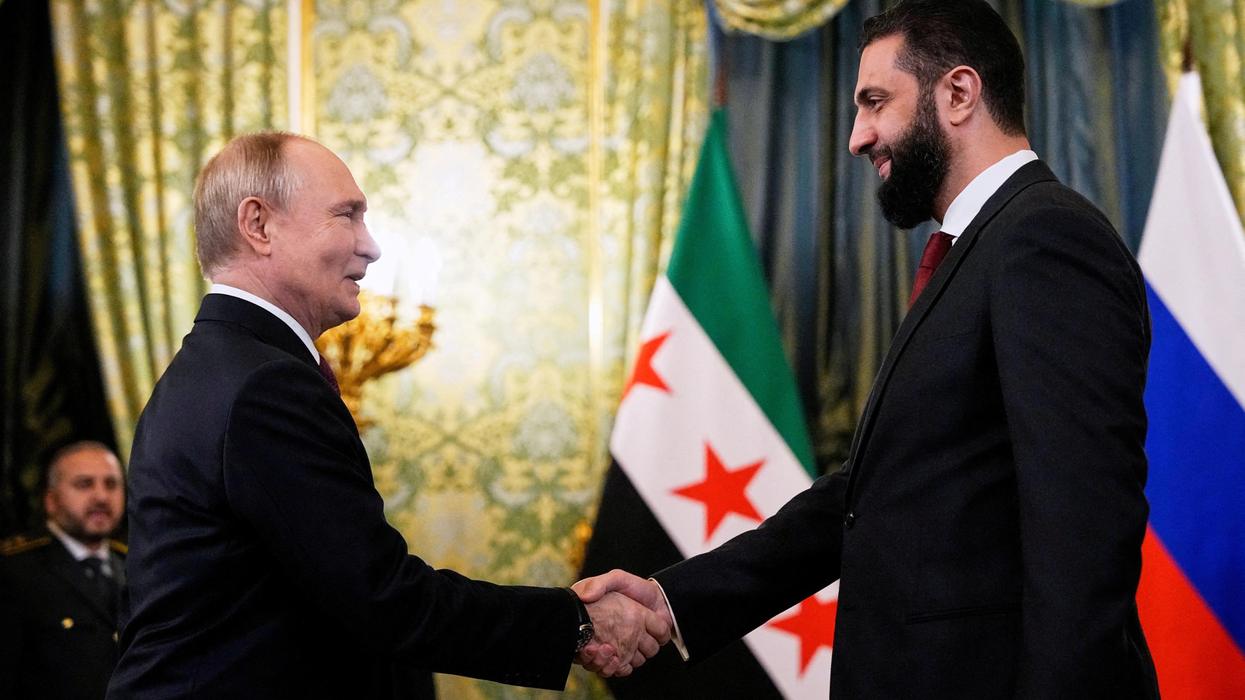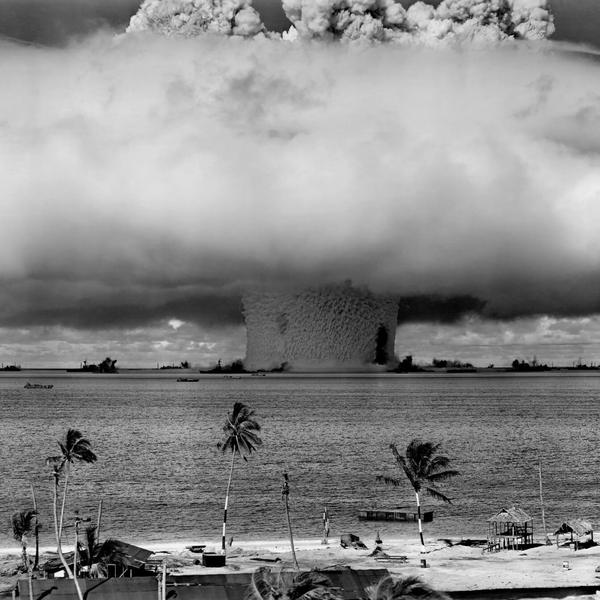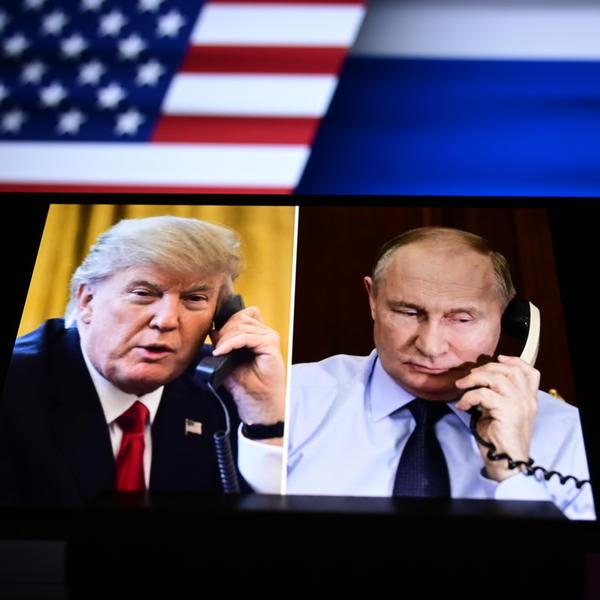A standard trope of Western rhetoric concerning Russia’s pressure on Ukraine is that to change borders by force is “unprecedented since the Second World War” and would “threaten the foundations of international order.” This is either historically illiterate or deliberately mendacious. There have in fact been a number of such changes since 1945. Sometimes the United States and its allies have themselves initiated these changes. Often they have acquiesced in them. Only very rarely indeed have they determinedly and successfully opposed them.
The cases of such change include: the partition of Palestine (followed later by the occupation and de facto Israeli annexation of the remainder); the Indian annexation of Kashmir (never formally recognized by the United States, but long accepted in practice); the de facto independence of Taiwan under U.S. protection; the Chinese occupation of territory claimed by India in the Himalayas; the separation of East Pakistan by India in 1971; the Turkish invasion of Cyprus and establishment of the Turkish republic of north Cyprus; the Moroccan seizure of the Western Sahara; the Indonesian seizure of western New Guinea; the Indonesian seizure of East Timor; Iraq’s attempted seizure of Kuwait; the break-up of Yugoslavia; the de facto independence of Iraqi Kurdistan; the separation of Kosovo from Serbia by NATO; Armenia’s seizure of Nagorno-Karabakh from Azerbaijan; and the other separatist states backed by first the Soviet Union and then Russia since 1990. One might also mention the separation of Ulster from the rest of Ireland by Britain in 1922. This of course occurred a generation before 1945, but had much in common with some of the other cases.
The U.S. army drove Iraq from Kuwait in 1991, and international pressure led Indonesia to withdraw from East Timor in 1999-2002. Apart from these cases and those involving Russia, all of the other ones were either supported or accepted by the West. Since NATO has paraded itself as a key pillar of international order, attention may be drawn to the invasion, in particular, of Cyprus in 1974 by Turkey — a NATO member that was neither expelled nor suspended from the alliance as a result of its action, nor was it placed under Western sanctions. Nor was Armenia sanctioned for its de facto annexation of Nagorno-Karabakh. Nor has the United States ever allowed its responses in these cases to be dictated or even influenced by the views of majorities in the United Nations Security Council and General Assembly.
To put the various disputes in the former Soviet Union in context, it is important to understand that all the cases that I have mentioned have one thing in common: they were all the consequence of the fall or dissolution of empires. The Soviet Union is often called an “empire” in Western discourse; yet only very rarely indeed have Western commentators tried to compare the fall of the USSR and its consequences with the end of West European empires in the mid-20th century, or with those of the Austro-Hungarian and Ottoman empires a few decades earlier.
And if there is one thing that is blindingly obvious about the fall of empires it is that their collapse is generally extremely messy and leaves innumerable conflicts in its wake. The reasons are disparate, but also common to all. In some cases, empires have suppressed old ethnic or ethno-religious rivalries that break out again when imperial power disappears. Sometimes empires have themselves laid the basis for post-imperial conflict by favoring one ethnic group over others, by introducing new settlers and colonists, by separating ethnicities that have long lived together (like the Pashtuns of Afghanistan and Pakistan), or, on the other hand, by cramming together in one administrative territory ethnic groups that had long been enemies. Sometimes empires played divide and rule with their subjects. Sometimes they simply followed administrative convenience (as with the British union of northern and southern Nigeria, which had no basis whatsoever in common history and ethnicity). Sometimes, local history and reality meant that there was simply no way to create post-colonial nation states without causing conflicts.
Before I went to the then-USSR as a correspondent for The Times (London) in February 1990, I had spent several years in South Asia as a student and journalist. While there, I became very accustomed to hearing the British Empire blamed for every post-imperial problem and conflict. Sometimes there was an element of truth in this. Thus, the British certainly exploited Hindu-Muslim tensions, though it is nonsense to say that they created them, and the British introduction of Tamil labor to Ceylonese tea plantations worsened Sinhalese-Tamil tensions, but also did not create them.
As often as not, however, casting blame on the British was no more than an attempt by local peoples and their elites to evade moral responsibility for conflicts that they themselves had initiated. With this experience and knowledge of history behind me, I was therefore better placed than most Western observers in the former USSR to cock a sceptical eye when informed by Armenians and Azeris that the war between them had been created by Moscow, or by Georgians that Abkhaz and Ossete identities and aspirations were mere figments of KGB manipulation.
It must also be said that from an ethical standpoint, the role of late colonial officials in trying to manage the decline of empire was not the same as their forebears who created those empires. The French conquest of Algeria, like the English conquest of Ireland, with the dispossession of the local population and the introduction of colonists was in both cases a monstrous crime. That, however, was not true to nearly the same extent of those French and British officials who in the second half of the 20th century had to try to manage the consequences of those crimes.
At the same time, there is one huge difference between the West European empires on the one hand and the Soviet Union on the other. The former were maritime empires. That meant that when empire ended, the imperial countries could go home and put hundreds or thousands of miles of ocean between themselves and their former colonies. The USSR, like the Ottoman empire, was a land empire. This means that the successor states, Russia and Turkey, have had to deal with post-imperial problems and conflicts on their borders, on their own territories, and involving members of their own ethnicities — though there is a clear parallel here with the British experience in Northern Ireland.
As in the case of Ireland, or the Middle East after the fall first of the Ottoman and then the British and French empires, these post-imperial problems and conflicts continue to work themselves out not over years but rather over decades, generations and even centuries. The international community may hope to solve some of them; the rest we will just have to try to manage so that they do not escalate into wider conflagrations. Ideally, local democratic votes should be the solution. In practice, this will not work in the very many cases where either a local minority simply refuses to accept the will of a different ethnic majority (as in Bosnia) or a local great power acts on behalf of one ethnic contestant, or both.
An attempt at universal legal rules is only of very limited help. In the end, if you ask why Kosovo can secede from Serbia, but the Serbian enclave of Mitrovica cannot secede from Kosovo, the honest answer is “because the West says it can’t;” and if, on the other hand, when Georgia left the USSR, and Abkhazia successfully left Georgia, the honest reason was “because Russia said it could.”
We have to manage these post-imperial conflicts as best we can for the sake of our own interests and international peace — not run around like Chicken Little legalists squawking that any sacrifice of our supposedly sacred principles will lead the sky to fall. Western virtue in these cases has in fact always been highly negotiable, and the rest of the world knows this very well.
















